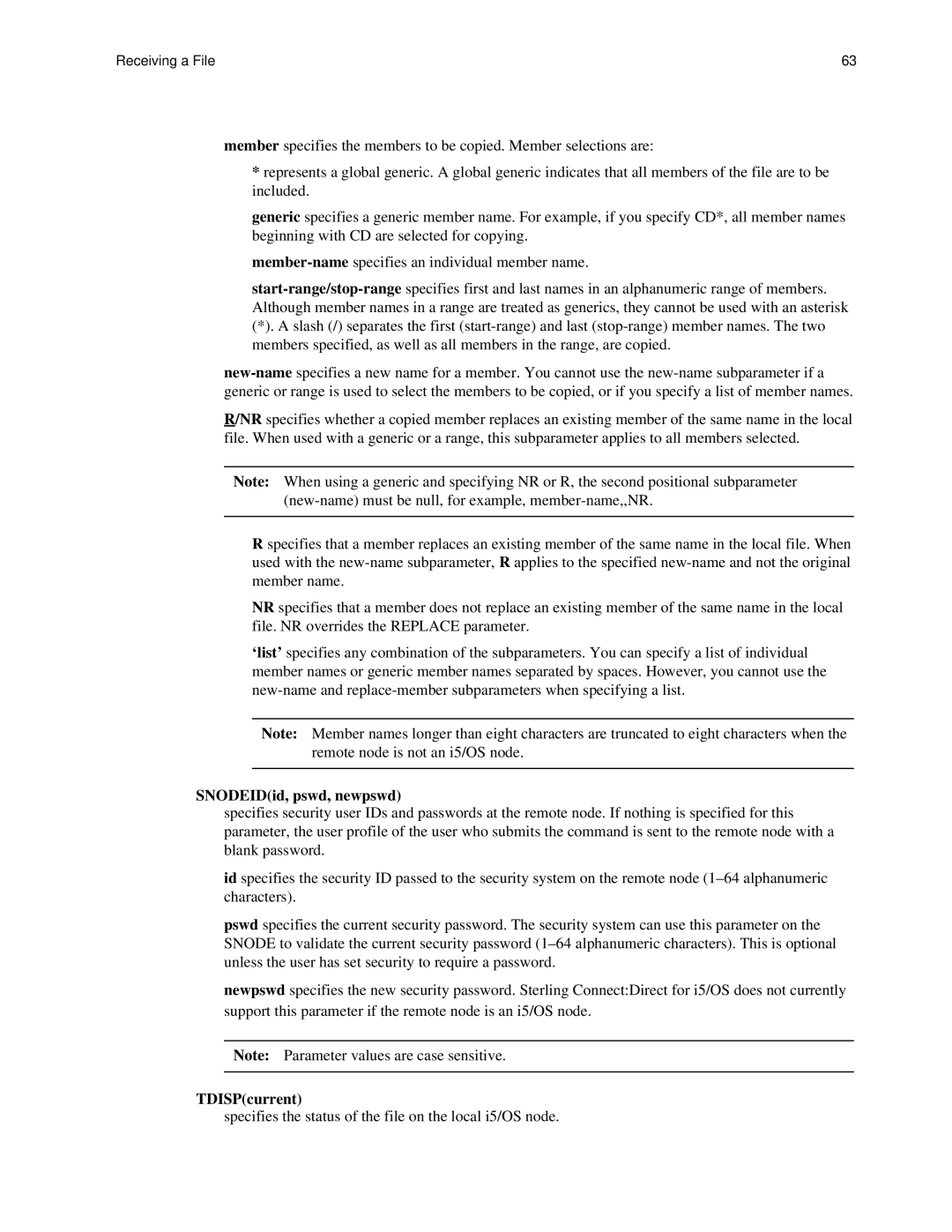
Receiving a File | 63 |
member specifies the members to be copied. Member selections are:
*represents a global generic. A global generic indicates that all members of the file are to be included.
generic specifies a generic member name. For example, if you specify CD*, all member names beginning with CD are selected for copying.
(*). A slash (/) separates the first
R/NR specifies whether a copied member replaces an existing member of the same name in the local file. When used with a generic or a range, this subparameter applies to all members selected.
Note: When using a generic and specifying NR or R, the second positional subparameter
R specifies that a member replaces an existing member of the same name in the local file. When used with the
NR specifies that a member does not replace an existing member of the same name in the local file. NR overrides the REPLACE parameter.
‘list’ specifies any combination of the subparameters. You can specify a list of individual member names or generic member names separated by spaces. However, you cannot use the
Note: Member names longer than eight characters are truncated to eight characters when the remote node is not an i5/OS node.
SNODEID(id, pswd, newpswd)
specifies security user IDs and passwords at the remote node. If nothing is specified for this parameter, the user profile of the user who submits the command is sent to the remote node with a blank password.
id specifies the security ID passed to the security system on the remote node
pswd specifies the current security password. The security system can use this parameter on the SNODE to validate the current security password
newpswd specifies the new security password. Sterling Connect:Direct for i5/OS does not currently support this parameter if the remote node is an i5/OS node.
Note: Parameter values are case sensitive.
TDISP(current)
specifies the status of the file on the local i5/OS node.
